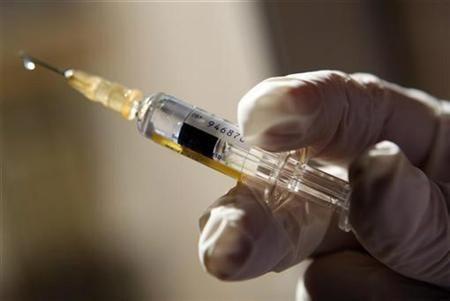Candice Armstrong Says She Grew A Penis And Facial Hair After Taking Anabolic Steroids

Candice Armstrong, 28, used to be a petite blonde before she started taking anabolic steroids to improve her physique. Now, the London native gets mistaken for a man on a daily basis due to her biceps that put most male bodybuilders to shame, as well as her facial hair and the swelling of her clitoris that resembles a penis, the Daily Mail reports.
“That has gone significantly bigger, yes,” Armstrong explained to Jodie Marsh during the filming of her TLC documentary Jodie Marsh On... Steroids. “About an inch [long] and it's shaped like a little penis. It looks like a little penis, you can roll back the foreskin.”
When regular exercise and pole dancing classes failed to give her the upper body she desired, Armstrong turned to steroids. A few weeks after starting a daily dose of the drug trenbolone, she started to get the results she wanted — in addition to some she didn’t. Her voice got deeper, she stopped menstruating, and she grew hair on her face, chest, and back.
While Armstrong says she never planned on becoming so masculine, she says it has “opened doors” for her in the form of a drag act. In spite of constant heckling and being mistaken for a man, she still manages to put on a smile and make the best out of her situation.
“I've always wanted to do a bit of drag! If I get called a tranny and a faggot when I walk out on the street anyway, I think why not make something of it!” Armstrong told Marsh. “You could argue that when I wanted big arms and broad shoulders, a bigger back and small hips, that that was a masculine look but I didn't consciously decide I want to change from a woman into a man.”
According to the National Institute of Drug Abuse, women who take anabolic steroids are at risk for various side effects including acne, growth of facial hair, male-pattern baldness, changes in menstrual cycle, an enlarged clitoris, and a deeper voice. People who abuse steroids tend to use 10 to 100 times higher the dose used to treat medical conditions such as delayed puberty, cancer, and AIDS.



























